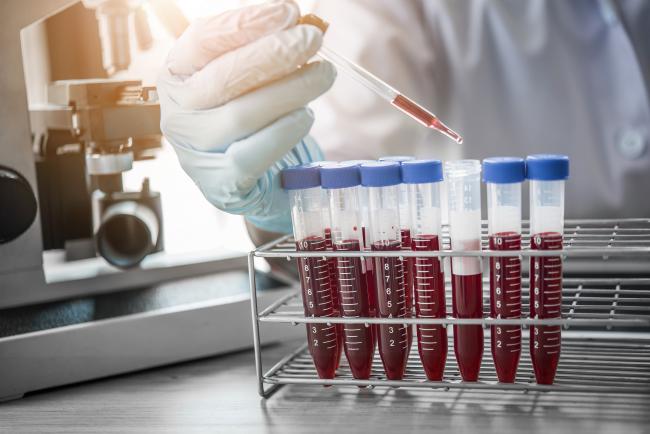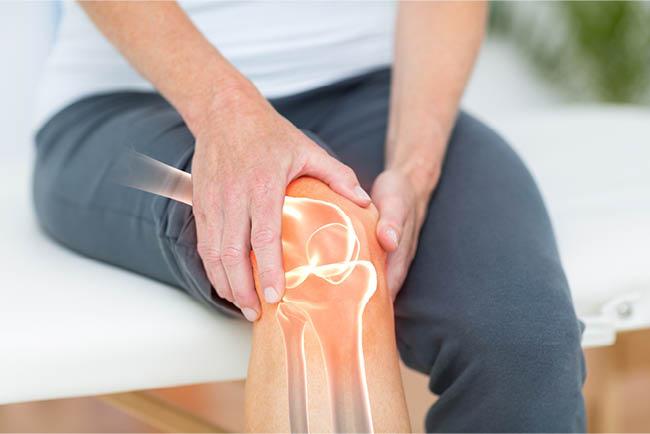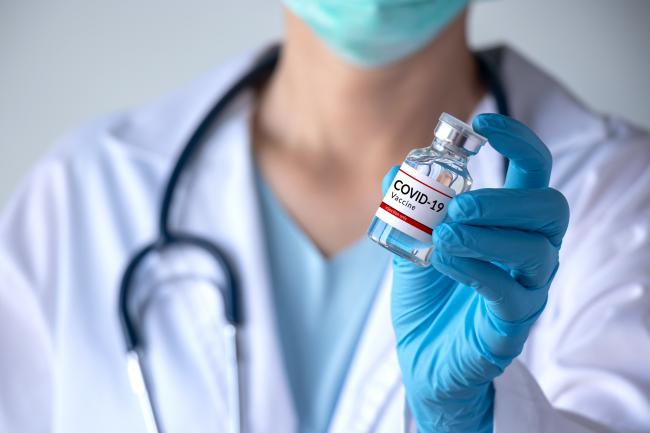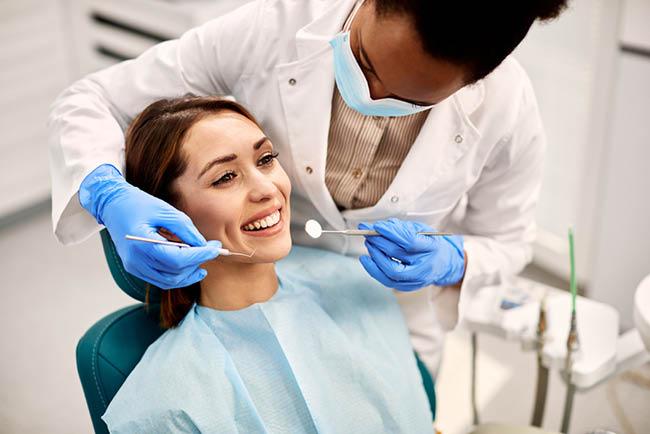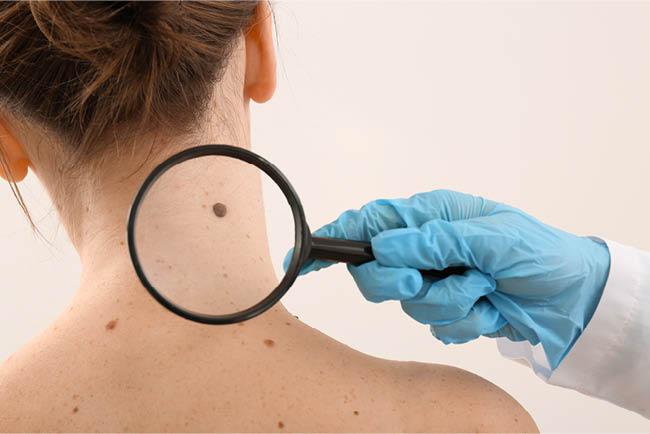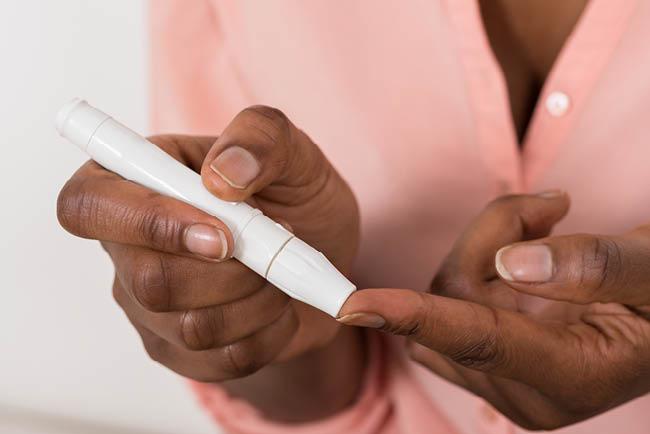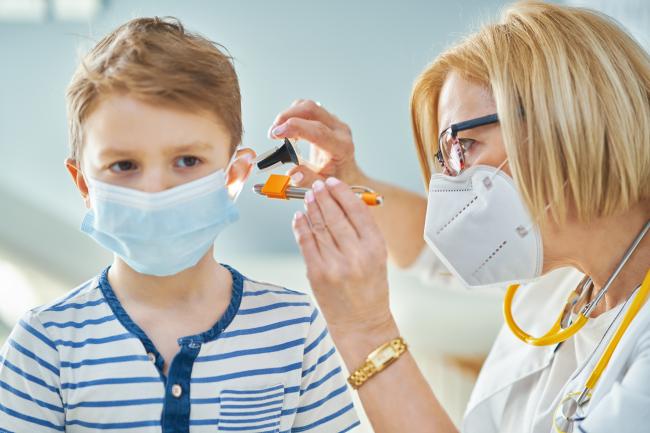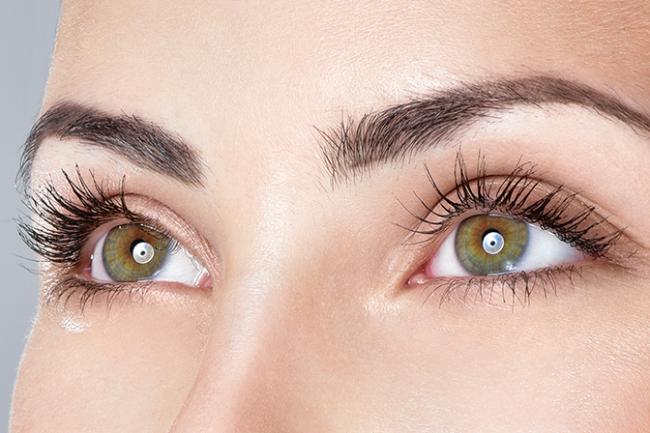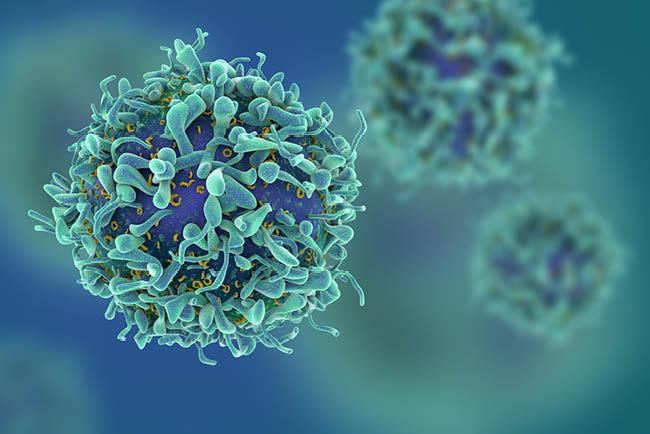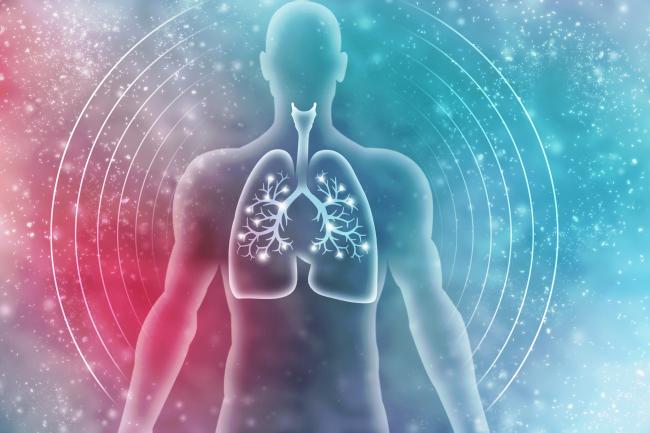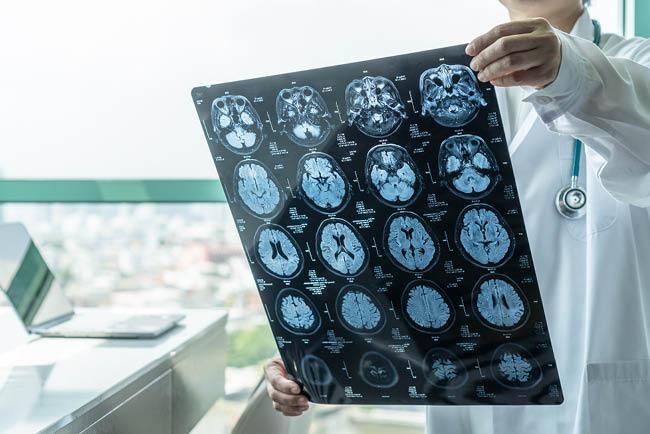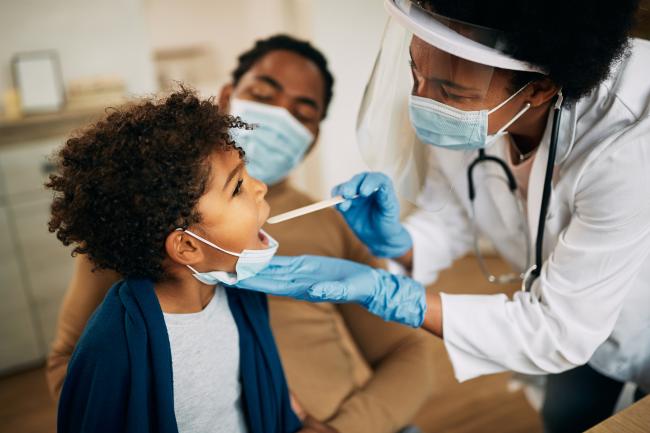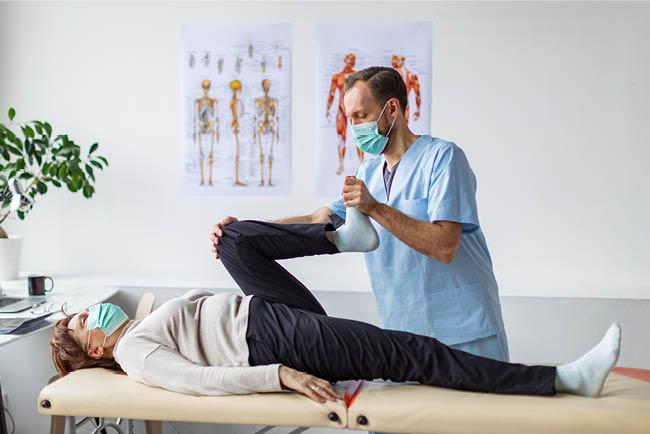Search Studies
Research studies are looking for volunteers just like you. Both healthy volunteers and participants with specific health conditions are needed to help answer important questions impacting the health of our friends and family. Join us to improve the health of others.
-
Combination HIV-Specific bnAbs Combined with ART Initiation during Acute HIV Infection
Official Title A Double-Blind, Randomized, Placebo-Controlled Clinical Trial of Combination HIV-Specific Broadly Neutralizing Monoclonal Antibodies Combined with ART Initiation during Acute HIV Infection to Induce HIV RemissionPurpose
The purpose of this study is to evaluate the safety and efficacy of combination bNAbs in addition to ART initiated during acute HIV infection and to evaluate the impact on HIV viral reservoirs.
Could this study be right for you?
- Newly diagnosed HIV+ individuals who have not yet started antiretroviral therapy (ART)
- Willingness to start ART at enrollment
- Ability and willingness to participate in scheduled study visits and analytic treatment interruption (ATI)
- Weight <115kg
Age Range
18 - 70 years -
Study of Tecovirimat for Human Monkeypox Virus
Official Title A Randomized, Placebo-Controlled, Double-Blinded Trial of the Safety and Efficacy of Tecovirimat for the Treatment of Human Mpox DiseasePurpose
This study will evaluate the safety and efficacy of tecovirimat for the treatment of human monkeypox virus (HMPXV) disease.
Could this study be right for you?
- Lab-confirmed OR suspected HMPXV infection
- At least one active skin lesion, mouth lesion, or proctitis with or without visible ulcers
- HMPXV illness of <14 days duration prior to study entry
Age Range
18 years and up -
Native-like Envelope Trimer Immunization (NETI) in HIV-1 Infected Adults
Official Title Safety, Tolerability and Immunogenicity of Recombinant HIV Envelope Protein VRC-HIVRGP096-00-VP (Trimer 4571) vaccine, in HIV-1 Infected Adults on suppressive ARTPurpose
The goal of this research study is to see if an investigational vaccine called Trimer 4571 is safe and well tolerated. Additionally, researchers will see if it will help the immune system produce broadly neutralizing antibodies (bNAbs) against HIV. bNAbs are a type of antibody that can recognize and block many types of HIV from entering healthy cells. Trimer 4571 is a vaccine designed to stimulate the development of bnAbs against HIV.
Could this study be right for you?
- On ART for at least 24 months
- HIV RNA <50 for at least 24 months
- CD4 count ≥200
- Known to have started ART during acute HIV infection
- BMI <40kg/m2
Age Range
18 years and up -
A Study about Triple Immune Strategy for HIV Remission
Official Title A Phase I/IIa Randomized, Placebo-Controlled Trial of Conserved-Mosaic T-cell Vaccine in a Regimen with Vesatolimod and Broadly Neutralizing Antibodies in Adults Initiated on Suppressive Antiretroviral Therapy during Acute HIV-1Purpose
This study will evaluate the safety and efficacy of these treatments in individuals with HIV-1 who started suppressive antiretroviral therapy (ART) during acute HIV-1 infection. The study consists of four steps including an analytical treatment interruption (ATI).
Could this study be right for you?
- Individuals with HIV who started treatment during acute HIV infection
- No known ART interruption >14 consecutive days since ART initiation
- Willingness to participate in analytic treatment interruption
- CD4 count ≥500 within 60 days to study entry
- HIV RNA <50 since initial viral suppression on ART and for at least 1 year prior to study entry
Age Range
18 years and up -
N-803 with or without bNAbs for HIV-1 Control in Participants Living with HIV-1 on Suppressive ART
Official Title A Phase I Clinical Trial of the Safety, Tolerability, and Efficacy of IL-15 Superagonist (N-803) With and Without Combination Broadly Neutralizing Antibodies to Induce HIV-1 Control During Analytic Treatment InterruptionPurpose
This study will evaluate the safety, tolerability, and efficacy of N-803 with or without bNAbs, to induce HIV-1 control during an analytic treatment interruption (ATI).
Could this study be right for you?
- HIV RNA <50 for at least 96 weeks
- On a stable ART regimen for at least 96 weeks
- CD4 count above 500
- No known history of CD4 count below 200
- Willingness to participate in analytic treatment interruption (ATI)
Age Range
18 - 70 years -
SOAR (State of Ohio Adversity and Resilience) Brain Health Study
Official Title State of Ohio Adversity and Resilience Study (SOAR)- Deep PhenotypingPurpose
The purpose of this study is to develop effective mental health and preventing suicide and substance use disorder, we must better understand risks, which lead to mental illness, and resilience, which allows us to grow even in presence of adversity. This study is looking at how people live and how they deal with distress, depression or drugs and alcohol in Ohio. Family members living in Ohio are asked to participate.
Could this study be right for you?
Eligibility:
Inclusion criteria:
- Adults, age 18-72, and adolescents, age 12-17.
Exclusion criteria:
- Inability to functionally communicate in English.
- Unwilling/unable to sign informed consent or assent document or obtain parental authorization from a parent or legal guardian (subjects <18 years old).
- Inability to understand/follow instructions for study procedures.
- Participants without at least 1 other family member who is willing to participate
- The definition of family member is subjective to the participant and may not be a blood relative.
Age Range
12 - 72 years -
Ohio Mood Disorder Registry and Repository
Official Title Ohio Mood Disorder Registry and RepositoryPurpose
Mood disorders like Major Depressive Disorder and Bipolar Disorder can be chronic, recurrent illnesses. Our treatments to date can help many people but are often trial and error, and continuity and access to care form major barriers. Our purpose is to create a research registry and repository of individuals with mood disorders who are willing to provide clinical data yearly, and who are willing to be contacted to participate in current and future studies of mood disorders.
Could this study be right for you?
Inclusion Criteria
- 8-70 years of age.
- Fluency or advanced conversational English abilities, by self-report.
- Eligible individuals will have a history of two or more mood disorder episodes (depression events of at least 2 weeks meeting 5 of the criteria for major depressive disorder).
Exclusion Criteria
- Head injury with loss of consciousness of five minutes or greater.
- Hospitalization for drug-related concerns.
- Evidence of intellectual disability.
- Diagnosis of a developmental condition like autism spectrum disorder.
- Evidence of psychosis outside of a mood episode (e.g., schizophrenia).
- Hospitalization or infusion for eating condition.
Age Range
8 - 70 years -
A Study Examining Cochlear Implant Surgery
Purpose
This study aims at preserving residual hearing and assessing outcomes in cochlear implant patients.
Could this study be right for you?
- Sensorineural hearing loss in both ears acquired after birth
- Better hearing in the low frequencies in the ear to be implanted
- Severe to profound hearing loss in the mid-to-high frequencies in the ear to be implanted
- English-speaking
Inclusion Criteria varies, please contact Study Coordinator.
Age Range
18 - 79 years -
A Study About Aromatic L-Amino Acid Decarboxylase Deficiency (AADC) in Pediatric Patients
Official Title A Single-Stage, Adaptive, Open-Label Dose Escalation Safety Study of Adeno-Associated Virus Encoding Human Aromatic L-Amino Acid Decarboxylase (AAV2-hAADC) Administered by MR- guided Infusion into the Midbrain in Pediatric Patients with AADC DeficiencyPurpose
The overall objective of this study is to determine the safety and efficacy of AAV2-hAADC delivered to the substantia nigra pars compacta (SNc) and ventral tegmental area (VTA) in children with aromatic L-amino acid decarboxylase (AADC) deficiency, and to see if there is a demonstration of effective restoration of AADC function by assays of CSF neurotransmitter metabolites and F-DOPA PET imaging, as allowed by subject’s ability to travel to undergo follow-up visits.
Could this study be right for you?
Inclusion Criteria
- Diagnosis of AADC deficiency from genetic test and CSF/blood enzyme test
- Failed to derive adequate benefit from standard medical therapy as judged by presence of residual oculugyric crises and developmental delay.
- Documented history of motor developmental delay, with inability to walk independently without support by age 18 months.
- Both parents (or legal guardians) must give their consent for their child’s participation in the study unless (i.) one parent is deceased, unknown or incompetent; (ii.) one parent is not reasonably available; or (iii.) one parent has responsibility for the care and custody of the child.
Inclusion Criteria varies, please contact Study Coordinator for more information.
Exclusion Criteria
- Presence of other significant medical or neurological conditions that would create an unacceptable operative or anesthetic risk.
- Previous stereotactic neurosurgery.
- Coagulopathy, or need for ongoing anticoagulant therapy.
- Receipt of any investigational agent within 60 days prior to Baseline and during study participation.
Exclusion Criteria varies, please contact Study Coordinator for more information.
Age Range
2 years and up -
Interview Study for Caregivers of Older Adults with Memory Problems
Official Title CareNet: An Interactive Digital Tool to Assess Informal Caregiving Networks of Older Adults with DementiaPurpose
We are interested in understanding the dynamics of caregiving when multiple caregivers are involved in caring for an older adult with memory problems. We would like to interview the primary caregiver in a brief one-time interview about their thoughts and experiences in providing care for an older adult with memory problems.
Could this study be right for you?
Participants must be:
- An unpaid caregiver of an older adult with memory loss problems
- The older adult must be 65 years or older
- The older adult must not live in a residential care/assisted living facility
- Able to identify at least one other unpaid caregiver for the older adult with memory loss problems
- Able to communicate in English
Age Range
18 years and up - An unpaid caregiver of an older adult with memory loss problems
-
Spinal Cord Stimulation and Small Fiber Peripheral Neuropathy
Official Title Spinal Cord Stimulation and Small Fiber Peripheral NeuropathyPurpose
The purpose of this study is to determine whether spinal cord stimulation (SCS) will reduce pain in patients with painful Diabetic Peripheral Neuropathy (DPN).
Could this study be right for you?
Inclusion Criteria:
- Over 18 years old
- Diagnosis of diabetic peripheral neuropathy refractory to treatment with gabapentin or pregabalin and at least 1 other class of analgesic
- Diagnosis of medically refractory pain secondary to diabetic neuropathy
- Presence of pain for 12 months
Exclusion Criteria:
- Severe medical comorbidities that, in the opinion of the surgeon, exclude the patient from surgical intervention
- Spinal disease with severe spinal stenosis or spinal cord compression in the region of the proposed spinal cord stimulator lead placement
- Coagulopathy that cannot be corrected
- Unable to discontinue blood thinning medications
Inclusion and Exclusion Criteria varies, please contact Study Coordinator.
Age Range
18 years and up -
Diabetic Foot Ulcer Study
Official Title Concurrent optical and magnetic stimulation (COMS) for treatment of refractory diabetic foot ulcer; a prospective randomized, sham-controlled, double-blinded, pivotal clinical trialPurpose
The purpose of this study is to evaluate the safety and effectiveness of the treatment with the COMS One device in subjects with refractory diabetic foot ulcers (DFUs).
The duration of this study will last up to 28 weeks.
Could this study be right for you?
Inclusion
- Male and females aged 22 to 90 years old
- Able to understand and sign the informed consent form (ICF) and comply with requirements set in the protocol including trial visits, trial treatment and dressing regimens and compliance with required offloading device (if applicable)
- Type 1 or Type 2 diabetes mellitus
Exclusion
- Known pregnancy or lactating
- Active skin cancer, a history of skin cancer or any other localized cancer, precancerous lesions or large moles in the areas to be treated
Inclusion and Exclusion Criteria varies, please contact Study Coordinator for more information.
Age Range
22 - 90 years


